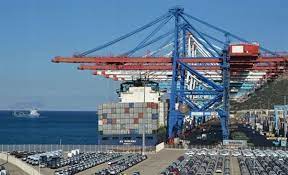This step forward will simplify export procedures, improve the traceability of trade and harmonise commercial
practices at continental level.
Morocco’s Customs and Indirect Tax Administration (ADII) has launched an initiative to dematerialise certificates of origin for exports to AfCFTA member countries, using the BADR system.
The African Continental Free Trade Area (AfCFTA), a flagship initiative of the African Union (AU), aims to strengthen intra-African economic and political ties. By removing state protection on production, employment and consumer standards, free trade aims to create a single market for goods and services, thereby facilitating
trade between African countries.
The dematerialisation of certificates of origin is part of Morocco’s drive to modernise and integrate its economy into this vast free trade area. The BADR system now enables applications for certificates of origin to be made at the time of export declaration, incorporating specific functions for entering information in line with the AfCFTA
requirements.
This step forward will simplify export procedures, improve the traceability of trade and harmonise commercial practices at continental level. Morocco is thus demonstrating its serious commitment to greater regional integration, with the hope of seeing intra-African trade multiply and intensify.
However, major disparities persist between the continent’s different sub-regions. Southern Africa, led by South Africa, dominates with 41.4percent of intra-African trade, compared with 25.7 percent for West Africa and just 6.6 percent for Central Africa. These disparities underline the importance of physical infrastructure and harmonised
policies for successful integration.
The global geopolitical and economic landscape is also weighing in on African trade. The Afreximbank report points to the upheavals caused by the conflicts in Ukraine and the Middle East, as well as the slowdown in growth in China and the developed countries, which are affecting global demand for African raw materials. The volatility of oil prices, which is particularly critical for countries such as Nigeria, Angola and Libya, continues to have a negative impact on the trade performance of these nations.
Faced with these challenges, the dematerialisation of certificates of origin represents a step towards a more integrated and resilient Africa, capable of taking advantage of the opportunities offered by free trade and adapting to the complexities of modern international trade.
MN/ac/fss/as/APA


